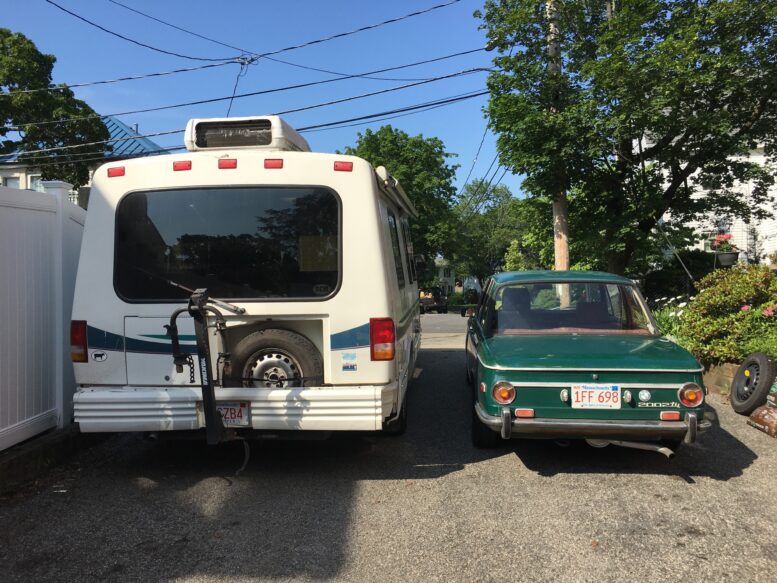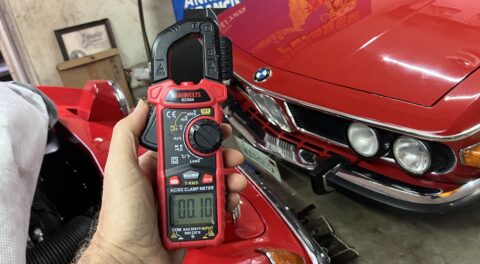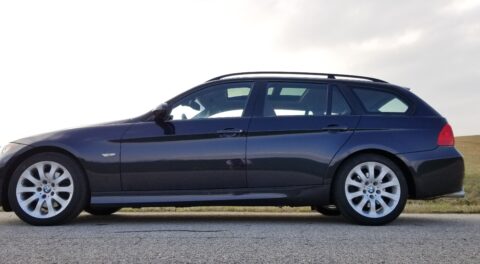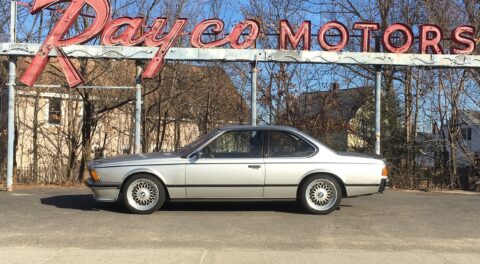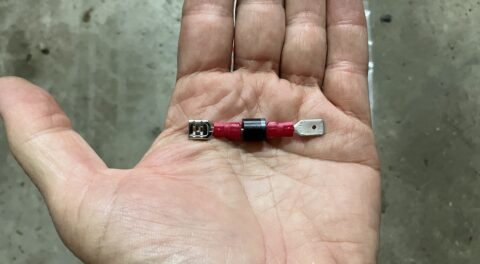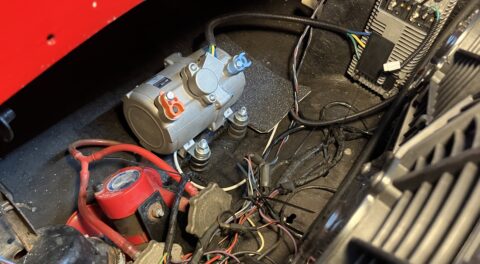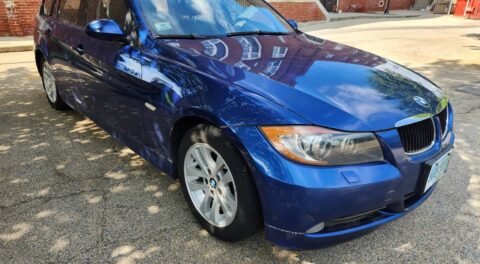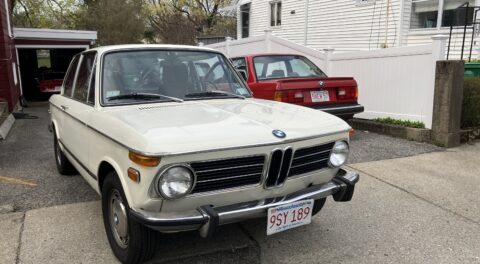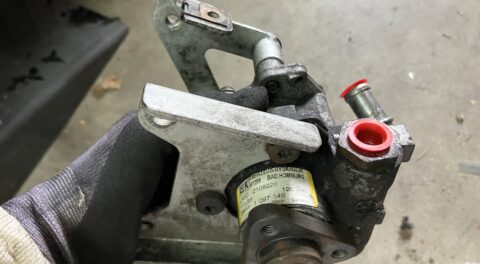I am well aware that I have this image as a bit of a loose cannon. A wing nut. A whack job. Two spanners short of a full tool kit.
In truth, I’m a surprisingly rational guy who usually thinks things through and decides when risks are worth taking and when they’re not. Witness my recent mini-vacation with my wife to Truro, just a stone’s throw from Provincetown at the tip of Cape Cod.
For 30 years, I took my family to Nantucket every summer, loading up a beater Suburban with children, boogie boards, surfboards, a windsurfer, guitars, and enough provisions to prepare the rented house for whatever family and friends joined us. Then the kids grew up and fledged, and changes in household income made the big annual Nantucket vacation too extravagant.
To try something new, seven years ago I bought the little 1996 Winnebago Rialta RV (the Volkswagen Eurovan with a Winnebago camper body on it). I didn’t know that its main role to be taking me and Maire Anne on affordable beach vacations on the Cape in $39/night state campgrounds, but it’s worked out pretty well.
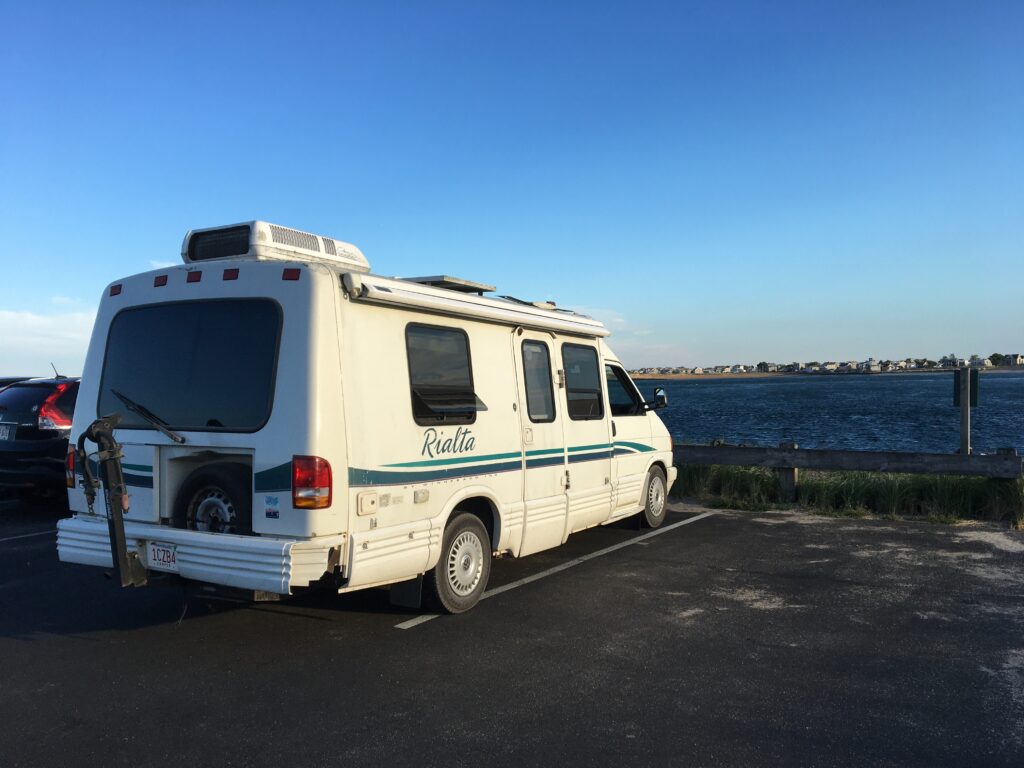
We do love our little RV beach trips…
Except that, the past few trips, the RV has had issues. At the end of last summer, the alternator died up on Massachusetts’ north shore. Fortunately, connecting overnight to shore power fully charges the two deep-discharge Optima coach batteries, and the solar panel on the roof continues to charge both them and the vehicle battery during daylight, so we made it home, but the trail of anxiety cast a pall on the outing. In a big slug of work before winter set in, I replaced the alternator as well as some nearby plastic coolant necks that were weeping coolant, and installed a long-overdue transmission cooler, as the Rialta’s transaxle is a real weak spot. Then, last month, as I wrote about here, in preparation for this summer’s beach jaunts, I prophylactically replaced the fuel pump.
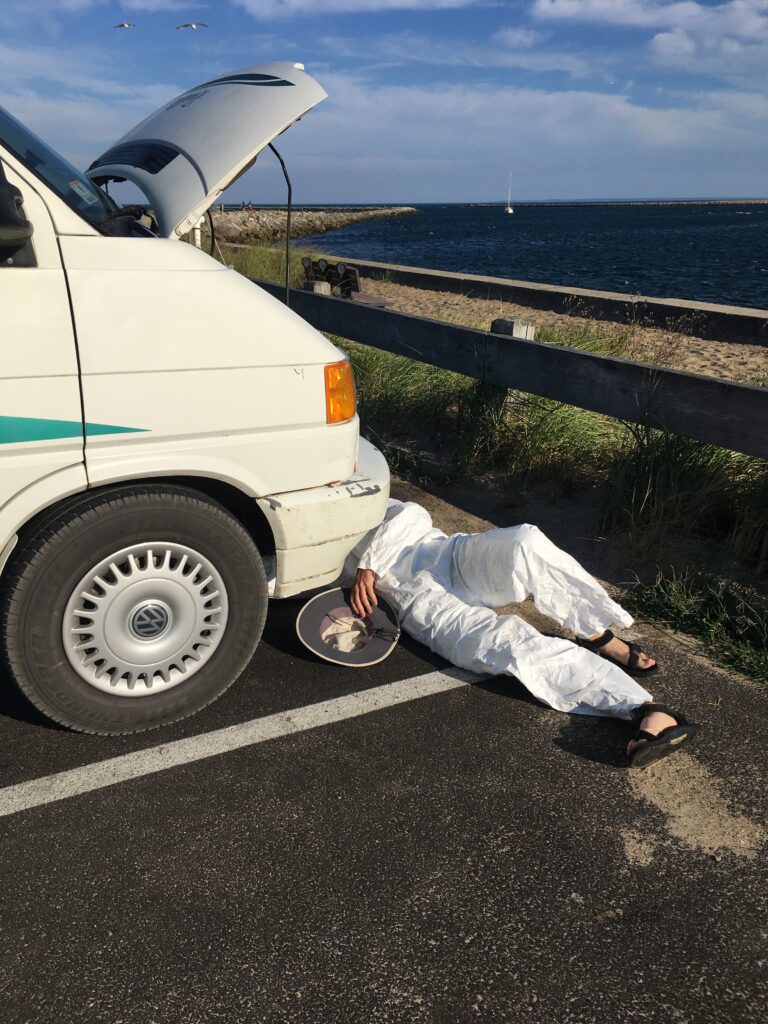
…at least until this happens.
With all that work, you’d think that the Rialta was good to go for a few days and a few hundred miles to and from the Cape. I mean it’s not as if we were about to take it over Donner Pass. And for the most part, it was.
Then, a few things happened. My wife had a doctor’s appointment that revealed that a long-known-about condition required surgery. Just like that, the spartan trappings of our little RV instantly gave way to my desire to pamper her with a stay in a newly-renovated cottage directly on the water in Truro.
That, however, didn’t take the RV off the table as a mode of transportation. One thing about owning an RV is that it makes you realize that having a vehicle with a bathroom in it is life-changing. Want to go for a bike ride or a hike on the beach? Go ahead. When you come back to your car, there’s a rest room waiting for you. Get caught in the rain? No problem. You can towel-dry and change clothes standing up instead of having to do that awkward horizontal shuffle on the seats. Plus, the Rialta’s 21-foot length is incredibly useful. It can hold the fishing rod and boogie board and guitar as well as Maire Anne’s sewing machine and quilting projects if we have to be cottage-bound due to rain while still being park-able. And I never know when I’ll drive past a yard sale and Maire Anne will spy a rattan love seat or I’ll stumble across a set of vintage Recaros. I drove the Rialta around Newton to make sure that the air conditioning still worked and that there were no issues from the fuel pump replacement or anything else that needed repair.
Unfortunately, after the car’s winter-long sit, the power steering pump was whining like a girl who can’t get front-row Taylor Swift tickets. The odd thing was that I’d replaced it last spring. I wondered if maybe it wasn’t the pump and was instead the idler pulley or the tensioner pulley, both of which are up high under the engine and difficult to reach.
And then I thought about something else. Several years ago, on the way to a Cape vacation, the Rialta’s brakes failed. Well, mostly failed—it popped one of the cheap corrugated metal brake lines that run to the rear wheel cylinders (yes, it has rear drum brakes). Miraculously, I found a repair shop a quarter mile away where I was able to limp it and who had it back to me in a day. I always meant to change the corrugated line that ran to the other wheel, but had never gotten around to it.
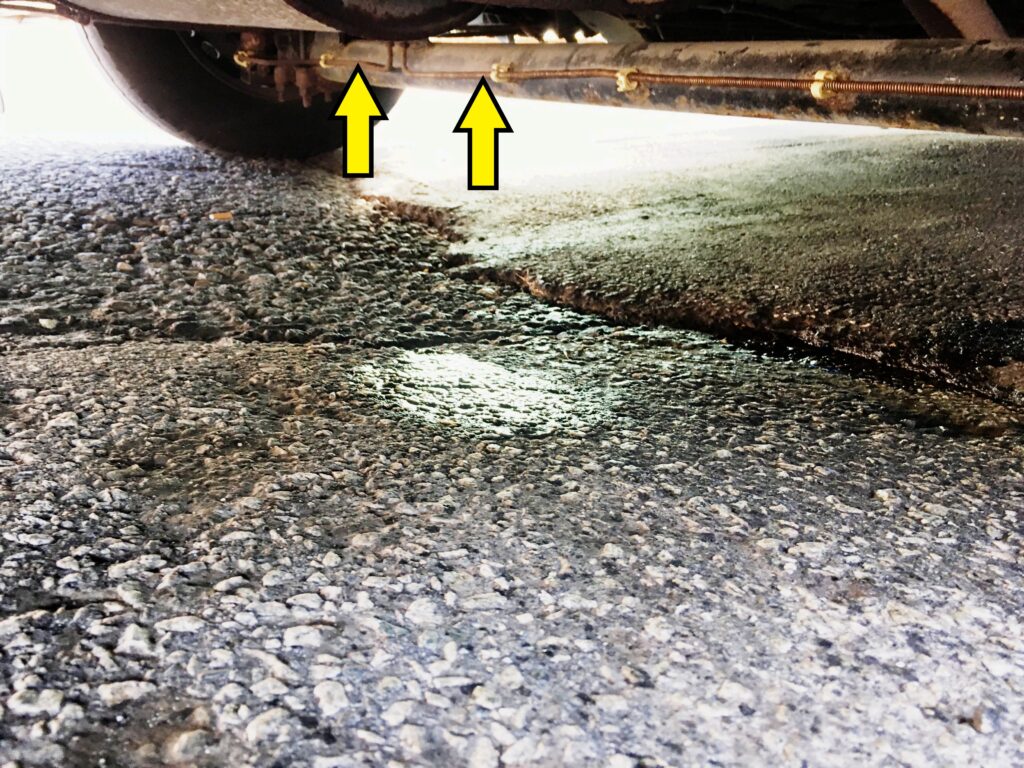
The line the right arrow is pointing to popped and was replaced. The line at the left arrow is still in the RV.
As our vacation departure was two days away, I weighed my options. I have a length of Cunifer (copper-nickel easy-bending brake line), a cutting tool, a flaring tool, and 10-mm fittings. I could bring them, along with the Motive power bleeder, just in case the line blew. Then I realized that this was stupid—if I was that concerned the line was going to blow, I should just replace the line and be done with it.
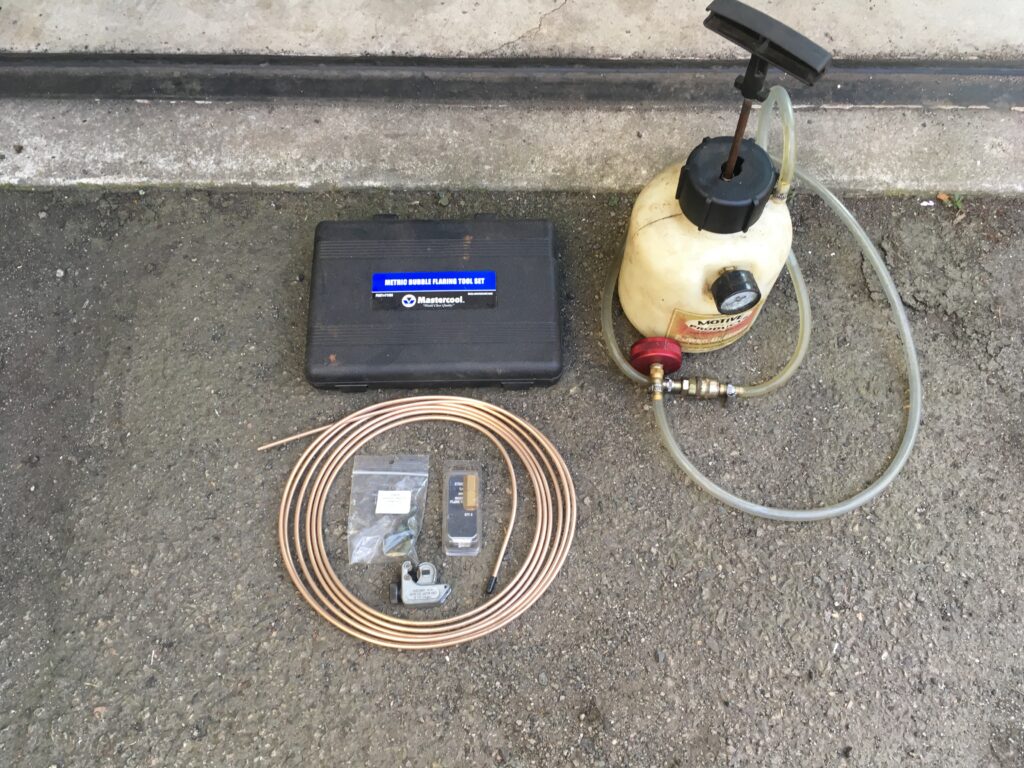
Was I really going to pack all this?
Years ago, I had these same concerns about the last Suburban I owned, a vehicle with brake lines so bad that there was a class action suit about it, and on which had already popped two of them. I was trying to decide whether to take the plunge and replace ALL of them with stainless lines. I drove the Suburban locally and mercilessly stabbed the brake pedal, daring another line to let go. It did. So I did the same thing to the Rialta—I drove it repeatedly on a number of errands, and as I got near my house, did my best imitation of Duane Johnson standing on the brake pedal. It held up. Yay Rialta.
Of course, once you get these ideas in your head, you can’t get them out, and I realized that I should just replace the line so I could stop worrying about it. Even with bleeding, it’d probably be two hours, tops. I crawled under the back of the Rialta to take a measurement, but it was 90 degrees out, and hotter on the asphalt. My mechanic’s bravado shriveled in the heat.
And then, an even better decision settled in for consideration. I thought “You know, we don’t have to take the Rialta. It’s an unnecessary risk in exchange for… what? A bathroom and space for stuff we don’t need?” It wasn’t a good enough reason.
As a diehard car guy, my next thought was, of course, “Great! We can take one of the fun cars!” The first one that popped into my head was the Bavaria, as its trunk can swallow just about anything you throw at it. Maybe not a wicker sofa or Recaro seats, but anything, you know, reasonable. Unfortunately, the Bav is in the warehouse in Monson. The cars here at the house are the 3.0CSi, the Z3 M Coupe, and Louie, the ’72 2002tii. The M Coupe, as I’ve written, causes me back distress on any drives over 45 minutes, and even if it didn’t, the cargo capacity is too small for five days at the beach, so it was out. The idea of driving the gorgeous lithe 3.0CSi was intoxicating, but the idea of parking it oceanside and exposing the Karmann-built body to salty ocean air for five days was horrifying. Horrifying won.
So, my gaze then settled on Louie. It’s generally a fairly well-sorted car, and it’s got bangin’ air conditioning. And how cool would it be taking it up to Truro and using it to zip around the narrow streets of Ptown?
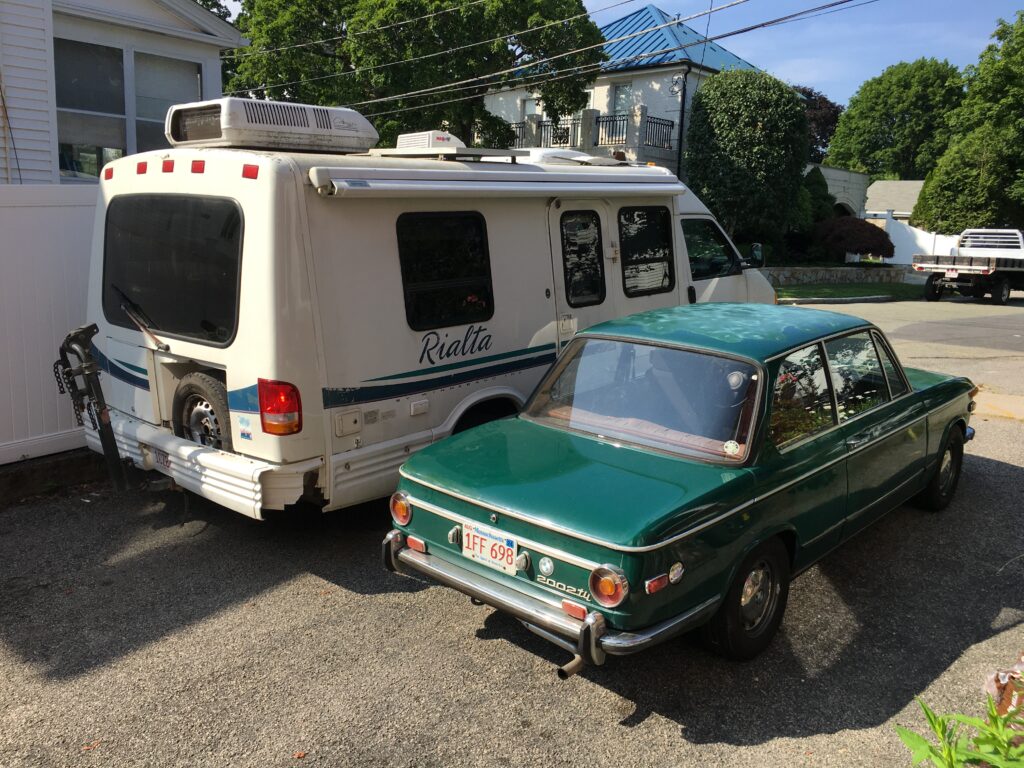
Is Louie going to the beach?
Unfortunately, I then remembered that Louie still has an unsolved brake fluid loss issue. Monitoring it on short drives around Newton until the diagnosis is clear is one thing. Driving it three hours to Provincetown with my wife in it is another.
Plus, let’s be honest—driving a 51-year-old car on any trip where breakdown would be inconvenient is risky. You can mitigate the risk by bringing the required inventory of tools and parts, but you can’t eliminate it. Of course, any car can break down at any time, but if you think the odds are equal in your vintage car and your wife’s 70,000-mile Honda, you’re kidding yourself.
So… speaking of your wife’s 70,000-mile Honda…
Yeah.
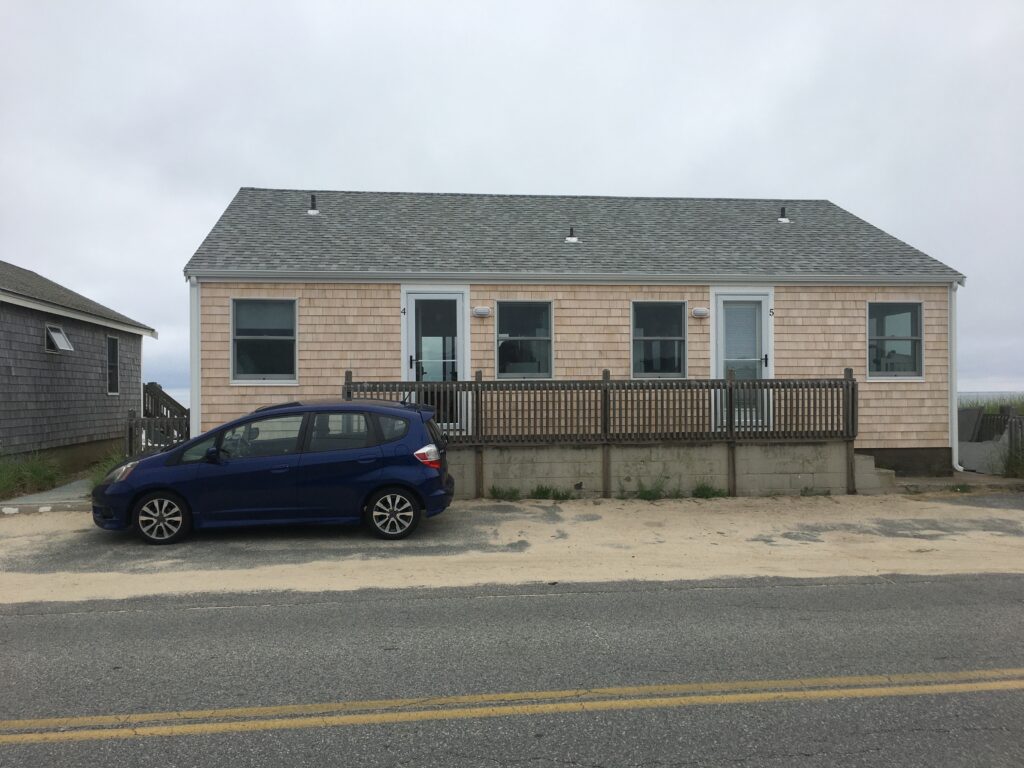
Advantage: Fit!
I have to admit that it was downright liberating to pack the 2014 Fit and not include a tool kit or a fuel pump or even a set of jumper cables. We had a great mini-vacation with zero car worries. Nothing went wrong. That is, other than noticing the Honda’s expired inspection sticker just before we left on Sunday when no inspection stations were open. I got it stickered in Truro first thing Monday morning.
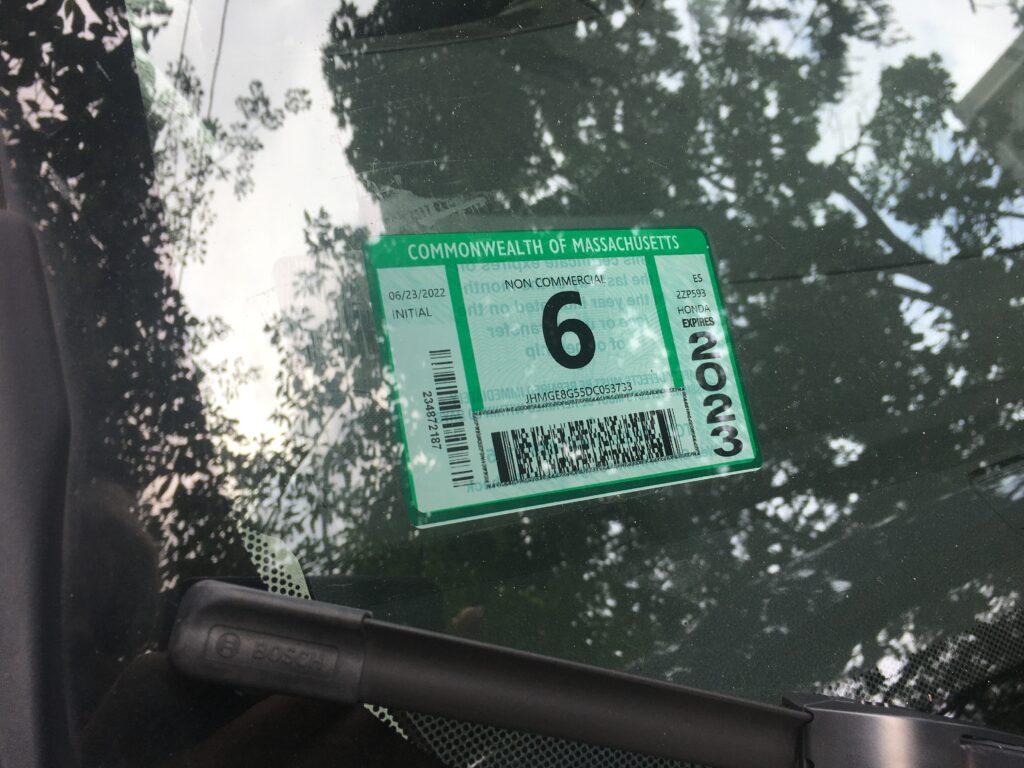
D’oh!
So, yeah, on a vacation that was all about relaxation for my wife, I bypassed the cool little RV and the 2003 E39 530i with 200,000 miles on it and the eight vintage BMWs and the Lotus Europa in favor of her Honda Fit.
Not as dumb as I seem, am I?
—Rob Siegel
____________________________________
Rob’s newest book, The Best of The Hack Mechanic, is available here on Amazon, as are his seven other books. Signed copies can be ordered directly from Rob here.

